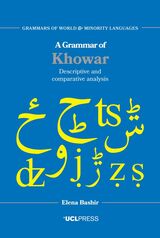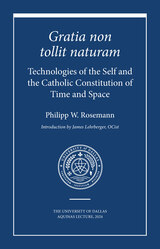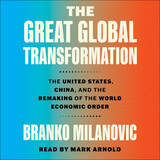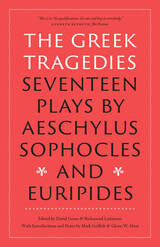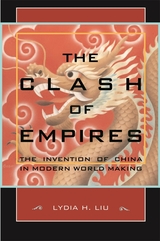
What is lost in translation may be a war, a world, a way of life. A unique look into the nineteenth-century clash of empires from both sides of the earthshaking encounter, this book reveals the connections between international law, modern warfare, and comparative grammar--and their influence on the shaping of the modern world in Eastern and Western terms.
The Clash of Empires brings to light the cultural legacy of sovereign thinking that emerged in the course of the violent meetings between the British Empire and the Qing Dynasty (1644-1911). Lydia Liu demonstrates how the collision of imperial will and competing interests, rather than the civilizational attributes of existing nations and cultures, led to the invention of "China," "the East," "the West," and the modern notion of "the world" in recent history. Drawing on her archival research and comparative analyses of English--and Chinese--language texts, as well as their respective translations, she explores how the rhetoric of barbarity and civilization, friend and enemy, and discourses on sovereign rights, injury, and dignity were a central part of British imperial warfare. Exposing the military and philological--and almost always translingual--nature of the clash of empires, this book provides a startlingly new interpretation of modern imperial history.

A border county in a border state, Barbour County, West Virginia felt the full terror and tragedy of the Civil War. The wounds of the Civil War cut most bitterly in the border states, that strip of America from Maryland to Kansas, where conflicting loyalties and traditions ripped apart communities, institutions, and families. Barbour County, in the mountainous Northwest of (West) Virginia, is a telling microcosm of the deep divisions which both caused the war and were caused by it. By examining and interpreting long-ignored documents of the times and the personal accounts of the people who were there, Clash of Loyalties offers a startling new view of America's most bitter hour. Nearly half of the military-age men in the county served in the armed forces, almost perfectly divided between the Union and the Confederacy. After West Virginia split with Virginia to rejoin the Union, Confederate soldiers from the regions could not safely visit their homes on furlough, or even send letters to their families. The county's two leading political figures, Samuel Woods and Spencer Dayton, became leaders of the fight for and against secession, dissolved their close personal friendship, and never spoke to one another again. The two factions launched campaigns of terror and intimidation, leading to the burning of several homes, the kidnapping of a sheriff, the murder of a pacifist minister, and the self-imposed exile of many of the county's influential families. The conflicting loyalties crossed nearly all social and economic lines; even the county's slave owners were evenly divided between Union and Confederate sympathies. With a meticulous examination of census and military records, geneologies, period newspapers, tax rolls, eyewitness accounts, and other relevant documents, Clash of Loyalties presents a compelling account of the passion and violence which tore apart Barbour County and the nation.
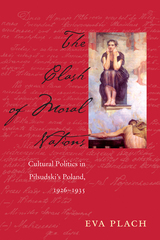

Journalist Jonathan Cook explores Israel’s key role in persuading the Bush administration to invade Iraq, as part of a plan to remake the Middle East, and their joint determination to isolate Iran and prevent it from acquiring nuclear weapons that might rival Israel’s own.
This concise and clearly argued book makes the case that Israel's desire to be the sole regional power in the Middle East neatly chimed with Bush’s objectives in the “war on terror”.
Examining a host of related issues, from the ethnic cleansing of Palestinians to the role of Big Oil and the demonisation of the Arab world, Cook argues that the current chaos in the Middle East is the objective of the Bush administration – a policy that is equally beneficial to Israel.


Since the Civil War whites and blacks have struggled over the meanings and uses of the Southern past. Indeed, today’s controversies over flying the Confederate flag, renaming schools and streets, and commemorating the Civil War and the civil rights movement are only the latest examples of this ongoing divisive contest over issues of regional identity and heritage. The Southern Past argues that these battles are ultimately about who has the power to determine what we remember of the past, and whether that remembrance will honor all Southerners or only select groups.
For more than a century after the Civil War, elite white Southerners systematically refined a version of the past that sanctioned their racial privilege and power. In the process, they filled public spaces with museums and monuments that made their version of the past sacrosanct. Yet, even as segregation and racial discrimination worsened, blacks contested the white version of Southern history and demanded inclusion. Streets became sites for elaborate commemorations of emancipation and schools became centers for the study of black history. This counter-memory surged forth, and became a potent inspiration for the civil rights movement and the black struggle to share a common Southern past rather than a divided one.
W. Fitzhugh Brundage’s searing exploration of how those who have the political power to represent the past simultaneously shape the present and determine the future is a valuable lesson as we confront our national past to meet the challenge of current realities.
READERS
Browse our collection.
PUBLISHERS
See BiblioVault's publisher services.
STUDENT SERVICES
Files for college accessibility offices.
UChicago Accessibility Resources
home | accessibility | search | about | contact us
BiblioVault ® 2001 - 2025
The University of Chicago Press


